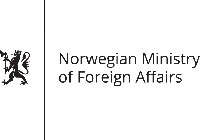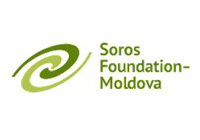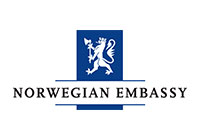.jpg)
The MP of the Action and Solidarity Party (PAS), Vasile Șoimaru, has shared with us a series of memories related to the moment of declaring the independence of the Republic of Moldova from the Soviet Union. As a deputy of the first Parliament of the Republic of Moldova and signatory of the Declaration of Independence, Vasile Șoimaru made an arc over time and told us about the backstage and the general context of 27 August 1991. Vasile Șoimaru has returned today to politics and has as political goals many of the dreams he had 30 years ago. We are inviting you to read the most important extracts from the discussion with him:
What memories do you have of 27 August 1991 and could you explain a little bit about the context in which the break-up from the USSR took place?
It should have been an inspiring moment, but I don't know why we in the Republic of Moldova ended up voting among the last in the USSR for the declaration of independence. The Moscow coup began on 19 August 1991, and we voted for independence only five days later. Only a few countries have voted for independence after us. Even Ukraine did this one day before us.
There have been mentioned several reasons for that but I think the main issue was that there was no one to write the draft of Declaration of Independence. Until the diplomat Aurel Preda from Bucharest came and did that. He was a great diplomat and patriot. He should have remained Romania's first ambassador to Chisinau, but I don't know why the authorities in Bucharest didn’t like him. He was probably a too straightforward person.
There have been several attempts to draft the Declaration of Independence before Aurel Preda but none was successful. And the diplomat Aurel Preda saved the situation. However, others took the credit for the ‘copyrigh’ of this Declaration of Independence.
Aurel Preda has drafted the Declaration of Independence so that based on it you can unite with Romania tomorrow. The unification was not achieved then because of the then Romanian president Ion Iliescu. Snegur was second in this matter. If Iliescu had not had the fear of Gorbachev then, things could have been different. And Iliescu could not do this, because they did not allow him from Moscow.
Transition and opportunism
What was the atmosphere back then and what were the people’s aspirations?
We were hoping to get rid of the Soviet power, but we haven’t for a single moment. We couldn’t get rid of it, because the ‘Empire’ was in us. The declaration of independence was voted and signed by 277 deputies, while the anthem “Awaken thee, Romanian!" was voted by 304 deputies.
The anthem was then voted also by those who were against independence. They didn't necessarily vote because they knew the meaning of the lyrics, but they just liked it. As I’ve told you, the Declaration of Independence was voted by 277 people, but then a strange number of 278 appeared. Then, the Speaker of the Parliament, Alexandru Moșanu, announced 277 people who voted, but now in all open sources the figure of 278 is mentioned, which is not correct. This addition can be explained by the fact that, later, the deputies who voted for the declaration were awarded the Order of the Republic, the highest distinction in the state.
Some of those who signed the Declaration of Independence at that time also became honorary members of the Romanian Academy, directors at the Romanian Cultural Institute, etc. Others got rich and others became communists and so on. These are all the people who made the Independence. Others, as was the case of Igor Dodon later, have continued having good relations with Moscow, which brought them benefits. There is also a category of people who have benefited simultaneously from Moscow and Bucharest. And some of them voted for President Vladimir Voronin in April 2005.
In conclusion, not much has changed since then. We consider ourselves independent, but, economically, we are not. Today, we are still heavily dependent on the Russian gas, for which we pay Gazprom higher prices than Germany or any other EU country. However, I believe that the independence of the Republic of Moldova was subsequently stolen twice. The first time in 1994, when the agrarians came to power, a kind of masked communists. They were the ones who included in the Constitution the Article 13 which refers to the ‘Moldovan language’ and that divided the society. The consequences of this decision can be seen even today.
Still today we remain divided, including because of this article 13. If we had five more votes now, in addition to the 63, we could have changed the Constitution. Unfortunately, these five votes were snatched from the PAS by the so-called nationalists in Bucharest. Thus, we could have solved this problem once and for all, because when the elections come, it automatically reappears and divides people.
What were people hoping for 30 years ago, Mr. Soimaru? Why didn’t they succeed and who were the actors who could do more for the Republic of Moldova?
They were hoping for a better life and more freedom. Many people were convinced that the unification with Romania would finally take place. However, I think many of the political leaders of that time were not clean and we could see that later, not on 27 August 1991.
In 1994, the agro-communists who played the ‘Empire’ game slowed us down, and our independence was stolen for the second time in 2001, when Voronin came to power. However, the worst things happened for the Republic of Moldova in 2011-2012, when the Alliance for European Integration (AIE) came to power, led by Plahotniuc, Filat and Ghimpu. This is the third political group which stole the independence of the Republic of Moldova. Nights in a row they have voted for corruption schemes.
Economic problems and causes of impoverishment of the Republic of Moldova
What has happened to the economy in the last 30 years?
It has all been destroyed. Nothing good happened. In 1989, we reached the highest economic level. Then came the huge downturn in the economy. The Gross Domestic Product has decreased three times in volume until 1999. In about 10 years, it decreased, as I was telling you, three times.
The main reasons for that is the transition period, but first of all it is the political leaders that are to be blamed. In June 1992, Valeriu Muravschi's government was ousted, and another government led by Andrei Sangheli was parachuted from Moscow. That was a mediocre government, consisting of only four intellectuals, and they could not change anything. Thus, until 1997-1998, that government had a disastrous effect on the country's economy. There has been a drastic decline from which we cannot recover still today. Today, after 30 years since independence, we have not even reached the level we had in 1989.
The new government needs an annual increase of 12 percent to reach the level of 1989 in the next four years. Unfortunately, we live in the poorest state in Europe. We are at the level of Ukraine, that it is still stronger as a state. We used to be twice as rich as Albania, but now they have left us behind. That's where we have gotten to. They have two or three highways, and we're barely repairing the roads here. We are kept in poverty, because in poverty we vote for the past. People are voting for communism in this difficult situation we are in now.
If we manage in the following four years to do something serious, to start projects for the population, to change maybe the railway track width so as Chisinau could connect to the railways in Europe, then things will change for the better. We need railways, which is the cheapest means of transport. We have no economic prospects otherwise to have goods.
My hobby is statistics. I graduated from college 50 years ago, exactly in 1971, and I've been following the statistics ever since.
Is there any hope today for the economy, given that over 66 percent of Moldova's exports go to the EU, after Russia imposed an economic embargo on Chisinau in 2013?
All evil was somehow for good. We were lucky that the EU extended a helping hand to us, and Romania in the first place. If this hadn’t happened, we would have been in a really bad situation. Russia hit us not only by banning imports from the Republic of Moldova, but also by the price for gas and electricity from the Cuciurgan plant.
Transnistria at the table of the great negotiations
What does the 30 years of independence mean for the Transnistrian case? Do you still have any hope that this region beyond the Dniester will de facto join the Republic of Moldova?
There are several factors involved in this case, and we cannot give up on this ‘lizard tail’. In the worst case, we could participate in an exchange with Ukraine. I think the EU could somehow persuade Ukraine to make some concessions.
However, we cannot give up on this region. There is still great economic and industrial potential there. There is also very good agricultural land with straight plains and much chernozem. I think we need to ‘buy’ the solution. I don't know though if this should be done with money or otherwise. Maybe if Germany weren't so friendly with the Kremlin, a solution would be easier to find.
The problem is that Russia maintains this region with free gas. And we pay for it. There, across the Dniester, gas is free, while in our case, Gazprom supplies us with gas at one of the highest prices in Europe.
During a recent visit to Chisinau, the deputy head of the Moscow Presidential Administration, Dmitry Kozak, said that the Transnistrian case is an internal matter of the Republic of Moldova. My question is how can there be only the internal matter of the Republic of Moldova, when Russia has thousands of soldiers in Transnistria. The problem is also about the Soviet ammunition stored in Cobasna. In case of an accident, everything will blow up there and shrapnel will reach Bucharest. The key to the settlement is with the big powers.
What will you do next in this government?
Now it is our last chance. No one will trust us if things don’t change in the next four years. No one will believe in Democracy as there is currently an unimaginable robbery in the country. In 2001, former President Mircea Snegur attacked the electorate, saying the people had made a wrong choice by voting for Voronin. However, that was a protest vote against those who were in power before Voronin.
Now 63 mandates have been given to Maia Sandu whom the people trust. We will not give in in the case of the Prosecutor General and we will go all the way to dismiss him. He can criticize us all, but we have to get rid of him, because he is the main impediment. All the onerous personages from the Republic of Moldova are hiding behind him - socialists and communists, and all the thieves who are now hiding in other countries. That's why he is not giving in.
How serious is this phenomenon of emigration from the Republic of Moldova? Why do you think the people left the Republic of Moldova and are there still hopes for them to return?
If some positive things start, part of the diaspora will return. Some of them are waiting to be invited for posts. Many Moldovan specialists were brought to several ministries and to the Parliament. It also takes a little patience.
Yes, the phenomenon of migration exists. Five million people also left Romania, and about one million people left the Republic of Moldova. In percentage terms, however, more people left Moldova. From one point of view, this is not the worst thing. People who left are looking differently at things. You have probably seen how organized they were in the presidential and parliamentary elections. They want to change things. But at the same time, I can see they do not venture to invest here, because there is a lack of trust. However, it would be very good if they did. Especially in agriculture.
Thank you for the interview!
Comments
Donors:






Partners:









